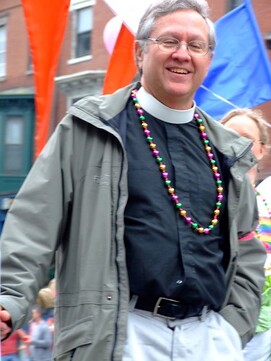|
Editor's note: As we continue forward in our journey of transition to new clergy, it seems like a good idea to make sure we're all speaking the same language. So, each week for the near future, we'll present a "term of transition": a word or phrase related to ordained ministry, and the process by which parishes go about identifying and calling their clergy leaders. What is a Priest-in-Charge?
However, "priest-in-charge" has also become a model for calling a priest that's different from the more traditional process. Rather than forming an internal committee tasked with discerning our needs, and then finding the right person (a process that can take as long as two years), the "priest-in-charge" model allows a parish to engage with a small pool of candidates vetted by the diocese. The candidate chosen enters into a two-year period of discernment with the congregation to decide whether s/he/they are the right person to lead the congregation as rector. At the end of that two years, either party can decide the fit isn't right; the relationship would last for one more year as the congregation begins a more traditional search. Alternatively, the parish's vestry can offer the priest-in-charge a rector's position, thus solidifying the relationship. If you're at all familiar with academic hiring, you may be thinking "This sounds a lot like the tenure track process." That's a good comparison: each hires for a set time during which the new employee is evaluated. At the end of that period, the employee and employer understand that either party may choose to go a different direction. If they decide to continue the professional relationship, though, it is considered "permanent," or long-term. What's the advantage to the priest-in-charge process? It's generally more streamlined: no separate committee is formed, and there's no pile of applications. The vestry engages with candidates provided by the diocese, and then chooses from them for the priest-in-charge call. Is this still an option for St. John's? Certainly. As we continue our conversations with the diocese about our clergy, we'll consider the priest-in-charge model. Got questions? Feel free to leave them in the comments below... Other "terms of transition": What is a deacon?
0 Comments
Leave a Reply. |
Editorial contactVarious members of the St. John's congregation contribute to this blog. For editorial suggestions, contact Jeff McIntire-Strasburg at [email protected] Archives
May 2024
CategoriesAll Bishop Deon Johnson Book Group Congregation Members Deacons Diocese Of Missouri Episcopal Church Features General Information Parish Events Podcast Presiding-bishop-michael-curry Sermons Terms-of-transition Vestry |

 RSS Feed
RSS Feed

